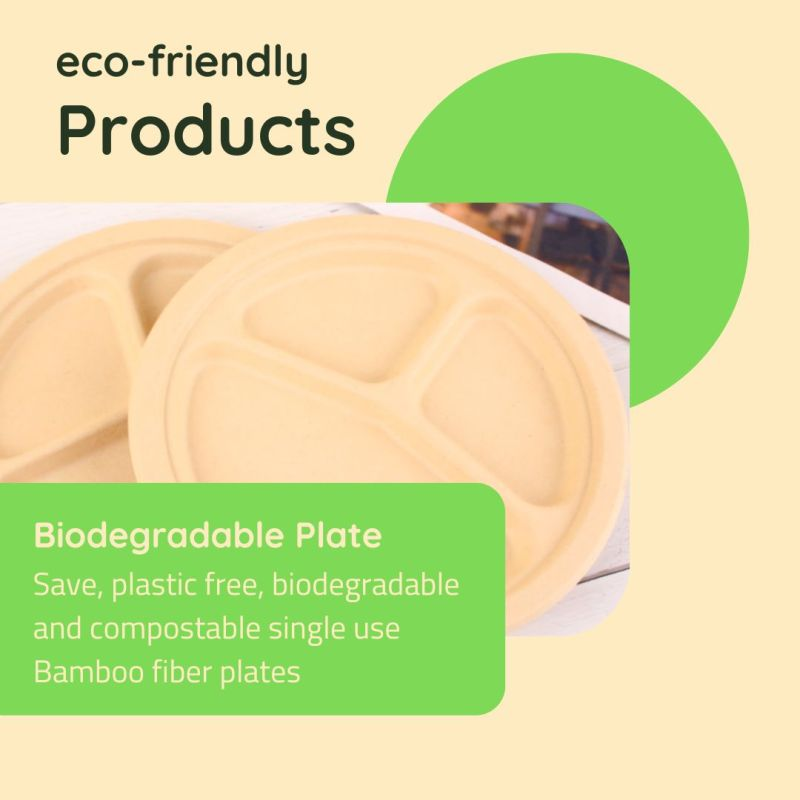
Choosing the right compostable plates can boost sales. However, understanding materials and selecting wisely ensures sustainability and business growth.
Compostable plates vary in material, design, and cost. Therefore, selecting the best type is crucial for meeting your business needs.
Read on to explore materials, compare costs, and find reliable suppliers for your wholesale needs.
What Are the Different Types of Compostable Plates?
Compostable plates come in diverse materials. Since each type has unique benefits and limitations, knowing these options will help you decide effectively.
Bamboo Pulp Plates: Durable and Eco-Friendly
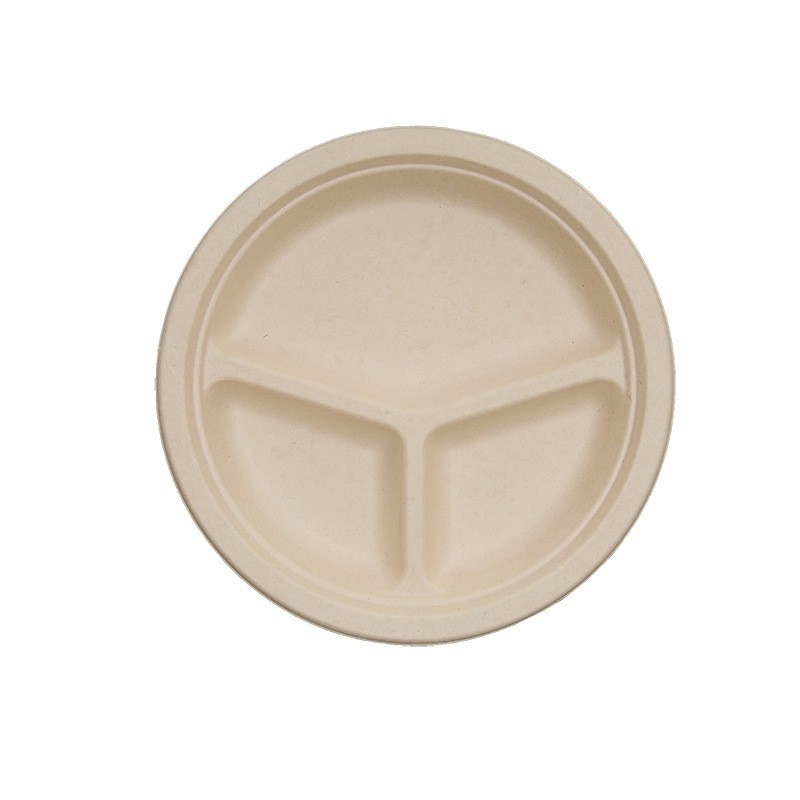
- Advantages: Made from renewable bamboo, biodegradable, and durable. Furthermore, they are suitable for hot and cold foods.
- Disadvantages: However, they are more expensive compared to other materials.
- Key Insight: Bamboo pulp plates are an excellent choice for businesses prioritizing sustainability and premium quality. Moreover, their strength makes them perfect for heavy or oily foods.
Sugarcane Pulp Plates: Affordable and Versatile
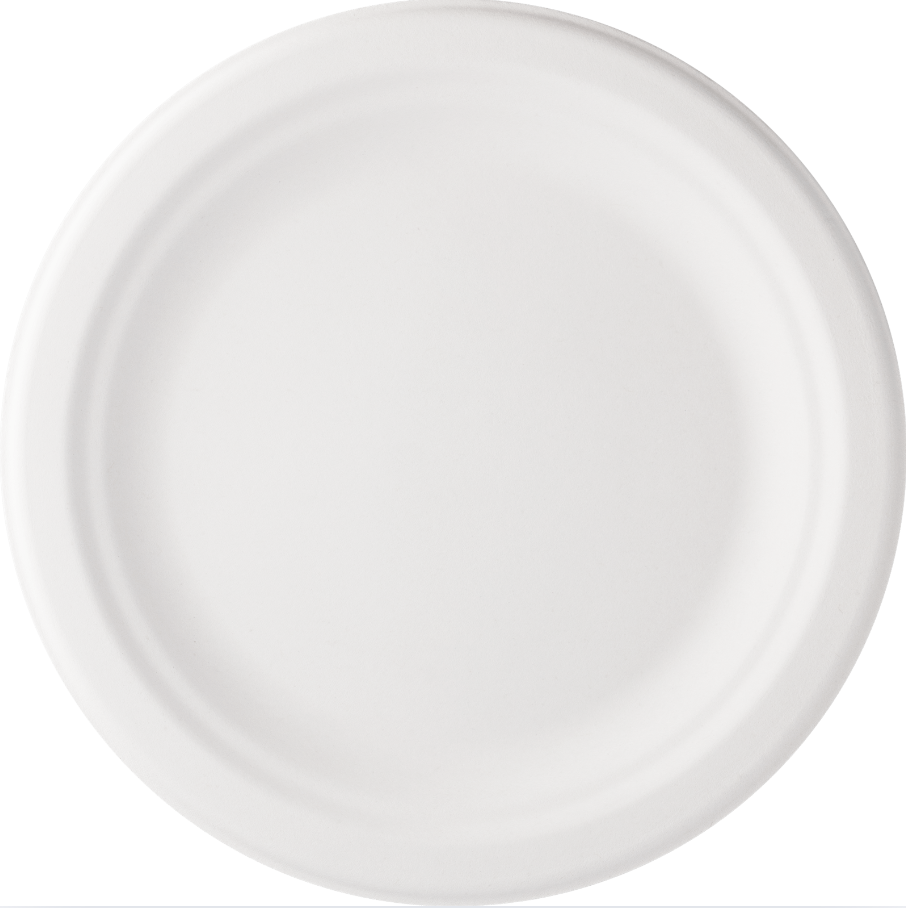
- Advantages: Affordable, compostable, and resistant to oil and water. Widely available.
- Disadvantages: Nevertheless, they are less durable and unsuitable for very heavy or wet items.
- Key Insight: Consequently, these plates are ideal for cost-conscious markets that still value eco-friendliness.
Paper Pulp Plates: Budget-Friendly with Limitations
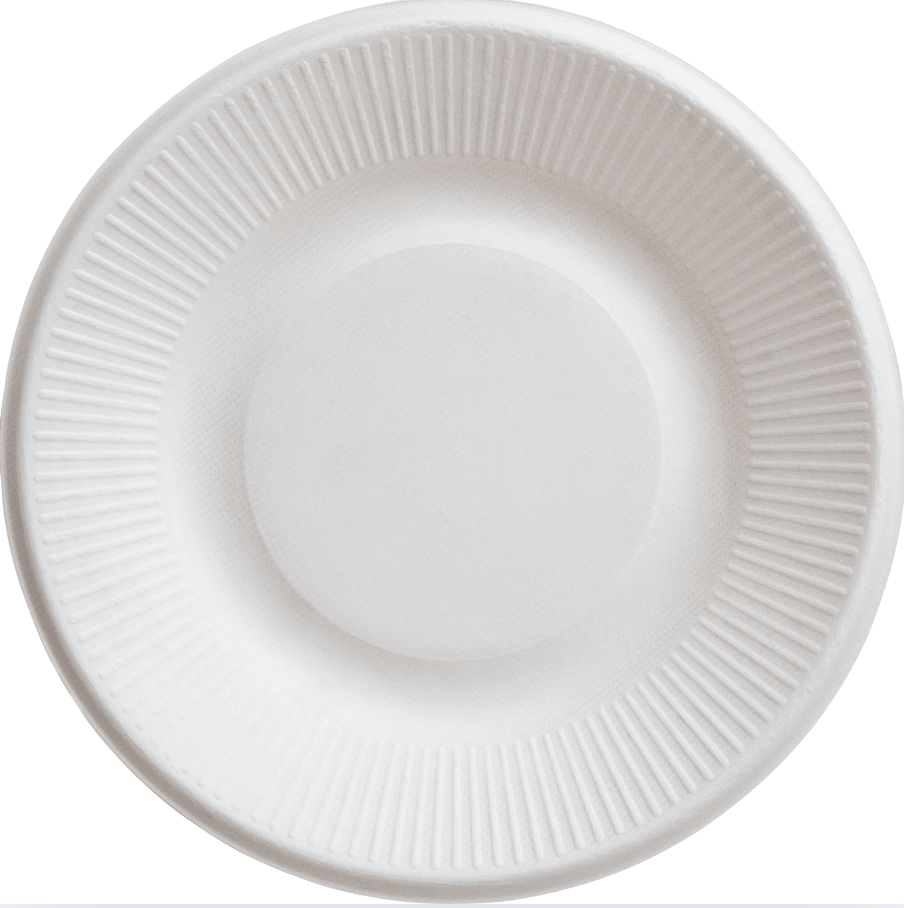
- Advantages: Low cost, customizable, and recyclable.
- Disadvantages: However, they are weak against moisture and have limited durability.
- Key Insight: Therefore, paper pulp plates work best for casual use and budget-conscious customers.
Palm Leaf Plates: Premium and Elegant
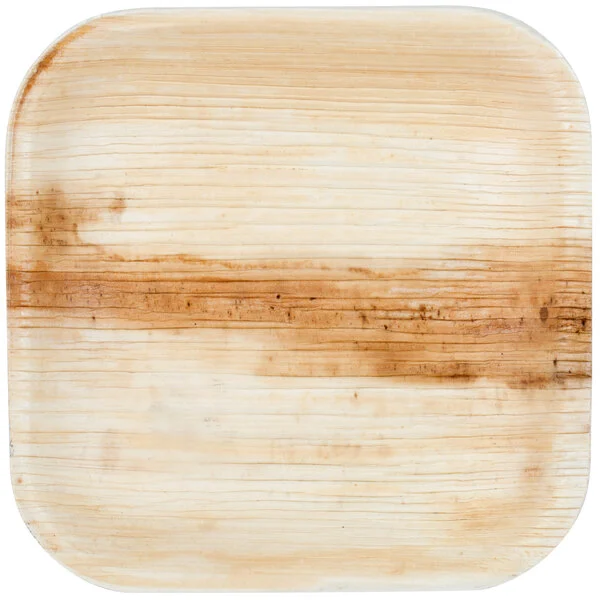
- Advantages: Naturally aesthetic, strong, and compostable. Perfect for premium events.
- Disadvantages: However, their higher cost and limited scalability make them suitable for niche markets.
- Key Insight: As a result, these plates cater to high-end clients who value uniqueness and sustainability.
Plant Fiber Plates: Versatile and Sustainable
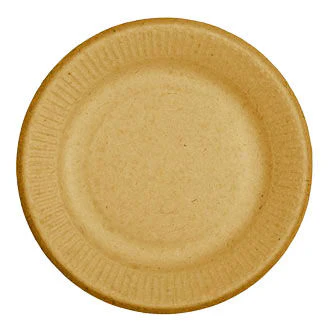
- Advantages: Eco-friendly, heat-resistant, and highly customizable.
- Disadvantages: Yet, they may require specialized processing, which can increase costs.
- Key Insight: Thus, plant fiber plates are versatile options for businesses seeking both sustainability and performance.
Material Comparison Table
| Material | Durability | Cost | Customization | Sustainability |
|---|---|---|---|---|
| Bamboo Pulp | High | High | Medium | Excellent |
| Sugarcane Pulp | Medium | Low | High | Excellent |
| Paper Pulp | Low | Low | High | Good |
| Palm Leaf | High | High | Low | Excellent |
| Plant Fiber | High | Medium | High | Excellent |
How to Compare the Advantages and Disadvantages?
Evaluating the pros and cons of different materials is essential to select the best option for your business. A thorough comparison ensures informed decision-making and long-term success.
Pros of Compostable Plates
- Attract Eco-Conscious Customers: Compostable plates appeal to environmentally aware consumers, enhancing your market reach.
- Cater to Diverse Demands: A variety of materials and designs allow you to meet different customer preferences and applications.
- Strengthen Brand Image: Using eco-friendly products aligns your business with sustainability trends, improving your reputation.
Cons to Consider
- Higher Costs for Premium Materials: Bamboo and palm leaf plates often come with a higher price tag, which may not suit all budgets.
- Special Handling Requirements: Certain materials may need additional certifications or processing, adding complexity to sourcing and logistics.
- Supply Chain Challenges: Limited availability of niche materials could lead to delays or inconsistent supplies.
Balancing Costs and Benefits
Price is a critical factor when choosing products for your wholesale business. While low-cost options might save money initially, they may compromise quality and customer satisfaction. On the other hand, premium materials like bamboo may require a higher upfront investment, but they often deliver better durability and environmental benefits, enhancing long-term ROI.
Tips for Better Decision-Making
- Compare Supplier Prices: Seek quotes from multiple suppliers to ensure competitive pricing without sacrificing quality.
- Evaluate Long-Term ROI: Consider the added value of high-quality products in terms of customer satisfaction and brand loyalty.
- Align with Market Needs: Match your material choice to the expectations and budget constraints of your target customers.
Pro Tip: Carefully balance the material costs and benefits with your business goals. Choosing the right material can drive sustainability and profitability while meeting market demands effectively.
Why Are Certifications and Standards Important?
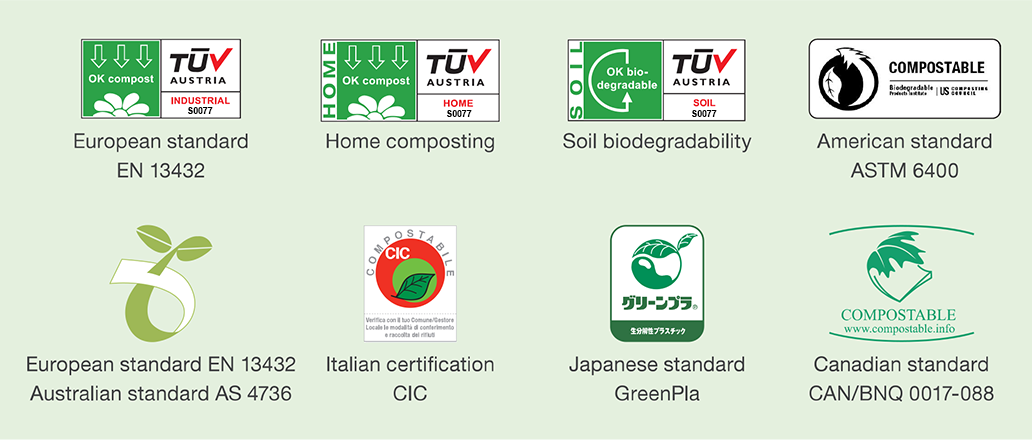
Certifications validate the compostable plates’ quality and ensure compliance with environmental standards. Thus, they are essential for building trust and market credibility.
Key Certifications to Look For
- BPI: Verifies industrial compostability, widely recognized in North America.
- OK Compost: Confirms suitability for industrial and home composting, popular in Europe.
- EN 13432: European standard for compostable packaging.
- ASTM D6400: Global benchmark for compostable plastics.
Certification Comparison Table
| Certification | Focus | Region | Application |
|---|---|---|---|
| BPI | Industrial composting | North America | Bioplastics and tableware |
| OK Compost | Home and industrial | Europe | All compostable materials |
| EN 13432 | Industrial composting | Europe | Packaging and food service |
| ASTM D6400 | Industrial composting | Global | Compostable plastics |
Pro Tip: Always choose suppliers who meet these standards. This ensures compliance and builds trust with your customers.
What to Look for in Suppliers?
Choosing reliable suppliers is essential for maintaining product quality and ensuring timely delivery. Therefore, it is crucial to evaluate their credentials carefully.
Important Factors to Evaluate
- Experience: Look for suppliers with a proven track record in compostable products.
- Certifications: Additionally, ensure they provide certifications like BPI or OK Compost.
- Logistics: Moreover, assess their delivery timelines and shipping processes.
- Payment Options: Lastly, confirm that they offer secure and flexible payment terms.
Supplier Evaluation Checklist
| Criteria | Key Questions |
|---|---|
| Experience | How long have you been in business? |
| Certifications | Can you provide compostability certificates? |
| Logistics | What is your average delivery time? |
| Payment Methods | What payment options are available? |
Tip: Partner with suppliers who prioritize transparency and have a reliable supply chain.
How Do Costs and Market Trends Impact Your Choice?
Cost-effectiveness and market trends significantly influence purchasing decisions. Therefore, balancing quality and price is key to long-term success.
Cost Considerations
- Bulk purchasing reduces per-unit costs.
- However, customization can increase initial expenses but adds value.
Market Trends
- Moreover, the demand for eco-friendly packaging is growing rapidly.
- Additionally, consumers are willing to pay a premium for sustainable products.
Insight: Align your pricing strategy with market trends to maximize your ROI.
Why PANABAM Is the Right Choice for Your Business
PANABAM is a leading manufacturer of disposable bamboo tableware with over 20 years of expertise. Moreover, as the first company in China to develop an automated production line for bamboo fiber tableware, we combine sustainability with innovation.
What Sets PANABAM Apart?
- Quality Assurance: Certified compostable products meeting global standards.
- Customization: Tailored designs to match your branding needs.
- Sustainability Commitment: 100% renewable, tree-free, and eco-friendly bamboo fiber products.
- Global Reach: Trusted by clients in the US, Canada, Europe, and beyond.
Contact Us for Tailored Solutions
Let PANABAM help grow your wholesale business with premium compostable plates. Contact us at info@panabam.com or visit www.panabam.com to learn more.
Conclusion
Choosing the best compostable plates requires understanding materials, certifications, and suppliers. Therefore, PANABAM’s expertise ensures top-quality, eco-friendly solutions for your business.
Frequently Asked Questions
What is the difference between biodegradable and compostable plates?
To begin with, biodegradable plates break down naturally over time; however, they may leave behind residues or take longer to degrade. On the other hand, compostable plates decompose under specific composting conditions, ensuring no toxic residue is left behind while enriching the soil.
What are the different types of compost you can buy?
When it comes to compost, there are several types to choose from:
- Home Compost: Generally made from kitchen scraps and yard waste, it’s perfect for small-scale use.
- Commercial Compost: Typically sold in bulk, it’s processed at large facilities to handle larger volumes.
- Specialized Compost: Additionally, there’s organic or enriched compost designed specifically for targeted plant needs.
What are the different types of composting?
To better understand composting, it is important to recognize the main types:
- Home Composting: Ideal for backyard setups and managing household organic waste.
- Industrial Composting: Often used for large-scale operations, it handles higher temperatures and larger quantities.
- Vermicomposting: Furthermore, using worms to break down organic matter can be highly efficient.
- Aerobic Composting: Lastly, this method involves oxygen-driven decomposition for faster and more effective results.
Are bamboo plates compostable?
Yes, bamboo plates are indeed compostable, provided they are free from non-compostable coatings or additives. Moreover, they decompose into natural elements under appropriate composting conditions, making them an eco-friendly choice.
Are compostable plates really compostable?
In fact, compostable plates are specifically designed to decompose in industrial or home composting systems. Nevertheless, they require the right conditions, such as adequate heat and moisture. Therefore, always check for certifications like BPI or EN 13432 to ensure authenticity.
What are the most environmentally friendly plates?
When considering eco-friendliness, plates made from bamboo, sugarcane pulp, or palm leaves are among the best options. They are renewable, biodegradable, and compostable, which minimizes their environmental impact while supporting sustainability.
How to tell if paper plates are compostable?
To determine if paper plates are compostable, look for certifications such as BPI, ASTM D6400, or EN 13432. Additionally, check whether the plates are uncoated or use compostable coatings like PLA (polylactic acid), which are ideal for composting purposes.
Are bamboo plates safer than plastic plates?
Yes, bamboo plates are unquestionably safer than plastic plates. They are free from harmful chemicals like BPA and phthalates. Furthermore, bamboo is biodegradable, making it not only safer for human use but also better for the environment.

Shmily Lee
Hi there! I’m Shmily, a proud mom to an amazing boy and the manager of PANABAM. We’ve been producing eco-friendly bamboo tableware that’s both sustainable and high-quality. I’m passionate about helping businesses embrace greener solutions. Let’s connect and create a more sustainable future together!